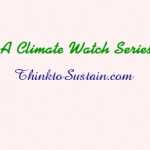It is true that given what was deemed to be politically possible going into Durban, Durban achieved some important progress. Yet, identifying this progress, without recognition of the magnitude and seriousness of the overall failures, obscures the message that most needs to be communicated to citizens, namely that most nations are failing to live up to their global obligations and this puts tens, if not hundreds, of millions of people and the resources on which life depends at great risk.
 To rectify the failure of nations to take their ethical obligations seriously, strategies need to be developed that turn up the volume on the ethical obligations of nations on climate change. At the top of the list is a strategy that would require nations to make their positions on major ethical issues entailed by climate change explicit so that they can be reflected on by citizens around the world.
To rectify the failure of nations to take their ethical obligations seriously, strategies need to be developed that turn up the volume on the ethical obligations of nations on climate change. At the top of the list is a strategy that would require nations to make their positions on major ethical issues entailed by climate change explicit so that they can be reflected on by citizens around the world.
There is a need to make national positions on climate change’s major ethical issues explicit because nations are frequently taking positions on climate change that are obviously deeply ethically flawed, but citizens around the world or the press have no way of commenting on these positions without speculating on the justification for the national position. Requiring nations to expressly identify their positions on such issues, as to what is their fair share of safe global emissions, would allow critical reflection on what each nation’s position is on a safe global atmospheric concentration stabilization level, given that atmospheric target what that nation believes is an acceptable global emission reduction pathway to achieve the atmospheric target, what is that nation’s position on its equitable share of future global emissions that will achieve the needed emission reduction pathway, as well as their ethical justification for all of these issues.
Although nations are likely to continue to resist committing to emission reductions consistent with what ethics would require of them, making national positions on these issues explicit would create an opportunity to exert global pressure on the most irresponsible nations.
References:
About the Author:
Donald A. Brown is Associate Professor of Environmental Ethics, Science and Law at Pennsylvania State University where he is currently teaching inter-disciplinary courses on climate change and sustainable development, and acting as Program Director of the Collaborative Program on the Ethical Dimensions of Climate Change whose secretariat is the Rock Ethics Institute at Penn State. Mr. Brown is also Director of the Pennsylvania Environmental Research Consortium, an organization comprised of 56 Pennsylvania universities and the Pennsylvania Departments of Environmental Protection and Conservation and Natural Resources.
Before holding these positions, he was an environmental lawyer for the states of Pennsylvania & New Jersey and Program Manager for United Nations Organizations at the United States Environmental Protection Agency’s Office of International Environmental Policy. Mr. Brown has written about and lectured extensively on climate change issues over the last 20 years. His interest has been the need to integrate environmental science, economic, and law in environmental policy making.
Also by the Author:
- Outcome of Cancun Climate Negotiations: An Ethical Analysis
- Ten Practical Policy Consequences of Acknowledging Climate Change as an Ethical Problem














